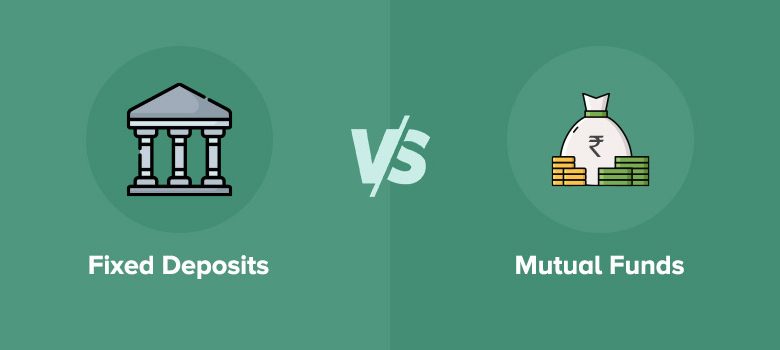MF vs FD Which One Should You Choose?

Invest early, invest well. Investing in stocks and other financial services is key to building wealth, but the idea of investing doesn’t always sit well with everyone. Here are some things you need to know in order to understand and make a well-informed decision about your investments.
How do MFs work?
MF schemes pool capital from multiple investors. This corpus is invested in various financial securities, including bonds, stocks, debt securities, money market instruments and other assets – depending on your MF’s mandate. These collateralized investments generate a return for the investor over a long period of time – usually 20+ years.
If you are looking for an investment vehicle where you will not have to worry about monitoring your investments, then this is for you. A fund manager takes care of all your investment decisions, allocates the assets under management (AUM) and decides the entry and exit times. Whichever asset class or strategy might be in favor at a given time will be purchased at that time.
Benefits of investing in MF schemes
As an investor in a mutual fund, your fund manager picks the best securities for making investments. These investments help you build a portfolio packed with high-growth stocks, bonds, government securities, etc. Since there are many factors that determine the rate of return on your money and may cause losses as well—such as inflation and market movements—your investment fund will also go up and down.
Create your SIP now, and get the best from it. In order to start investing with a SIP, you need to invest at least Rs. 100 in the initial stage of your journey. Your investment will grow as you invest more, but we also understand that people are busy and want to try out what usf Mutual Funds offer to them. That’s why we offer beginners a special welcome bonus on top of our regular pricing system!
MF schemes are designed to help you invest in a range of products, be it equities or debt instruments. With MFs, you can easily park funds in a broad spectrum of asset classes. Whether you are risk-averse or an aggressive investor, you can find a product suited to your time horizon, investment objective, risk profile, income, etc.
How do FDs work?
If you’d like to lock away a lump sum amount in a fixed deposit for a predetermined tenure, this is the kind of product for which we have a solution. Here, the amount you deposit earns a fixed interest rate. Besides, since the FD interest is fixed, you know exactly how much your money will grow within the period and enjoy the highest assurance of earning decent, consistent returns.
Types of FDs
- Cumulative FD
- Non-cumulative FD
Money that earns interest in cumulative deposits is added to the principal sum deposited and is reinvested. This means you enjoy accrual interest growth. Now when your FD matures, you collect your invested principal amount and the earned interest.
Benefits of investing in an FD
Fixed deposits are perhaps the longest-term or safe investments, requiring you to make regular deposits but not require a return on them. In addition, they are among the safest and highest yielding investment avenues available in India, with many banks offering attractive returns. Some of the top banks in India offer fixed deposit products that provide attractive interest rates over a period of up to 3 months to 5 years and promise to let you park your money safely away!
You’re not locked in at the end of your investment period, so you can still access your money any time you choose. With no other fees or charges, this account will provide an effective way to manage your liquid funds.



